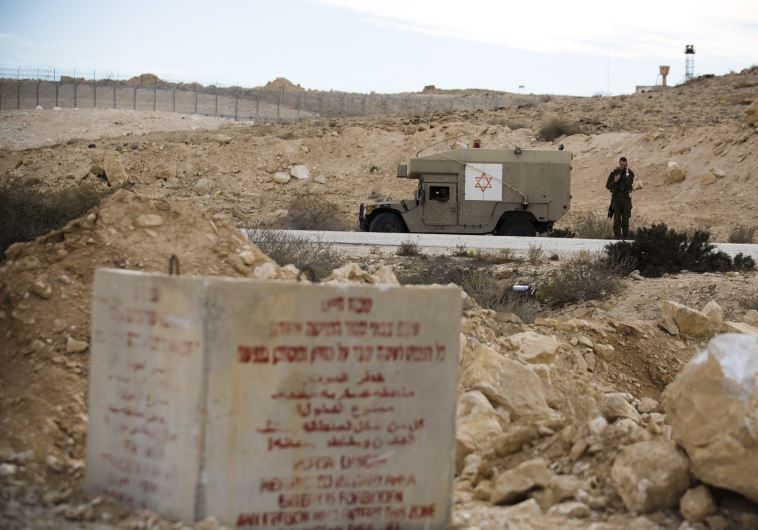Government plans to build 30 km fortified fence on Jordanian border
The new fence will run from the border east of Eilat to the Timna airport, and will be built entirely on Israeli land.
 An IDF soldier near the border fence between Israel and Egypt. Updated:
An IDF soldier near the border fence between Israel and Egypt. Updated: